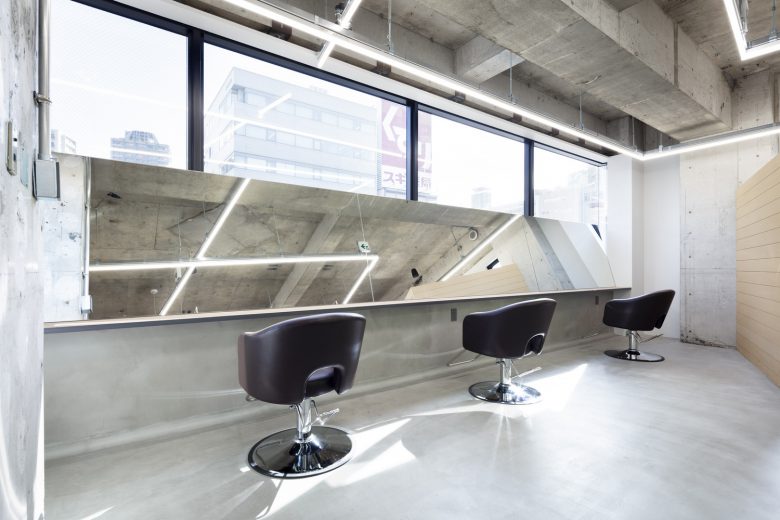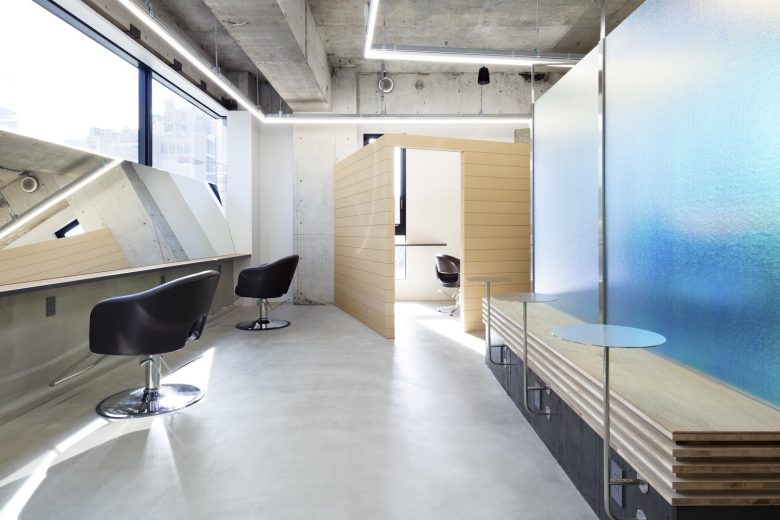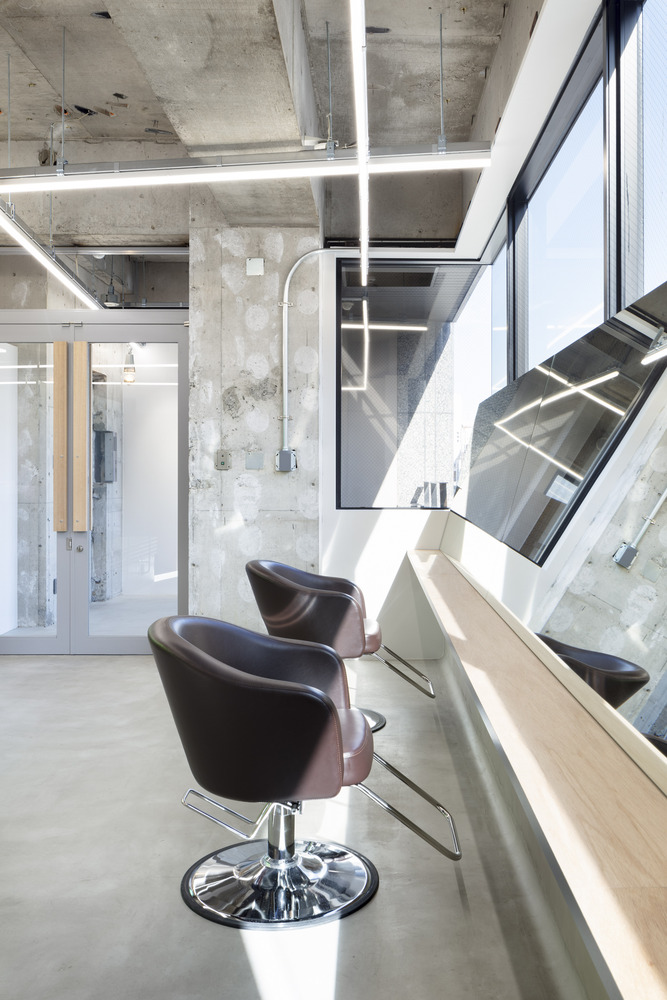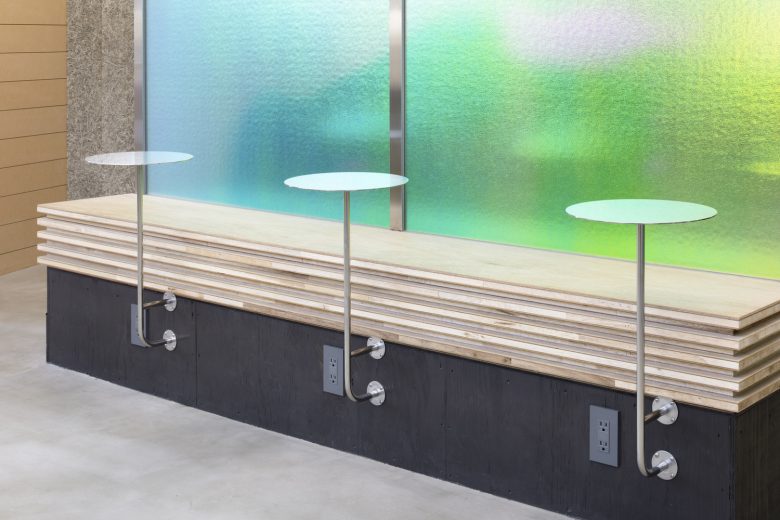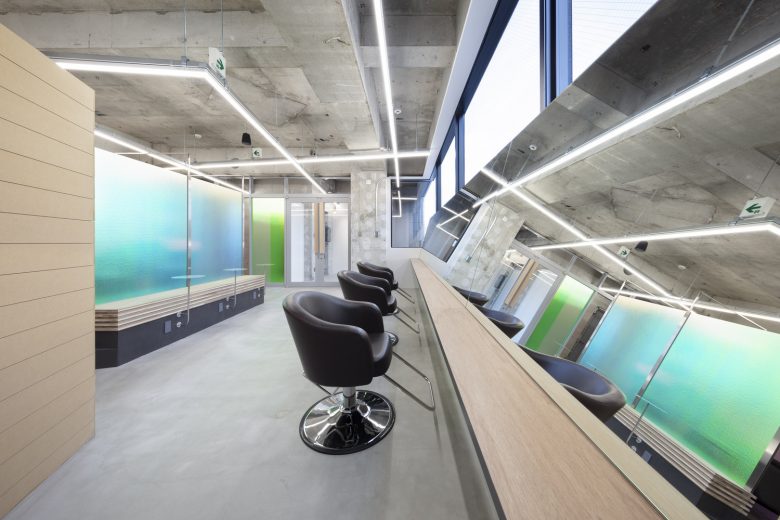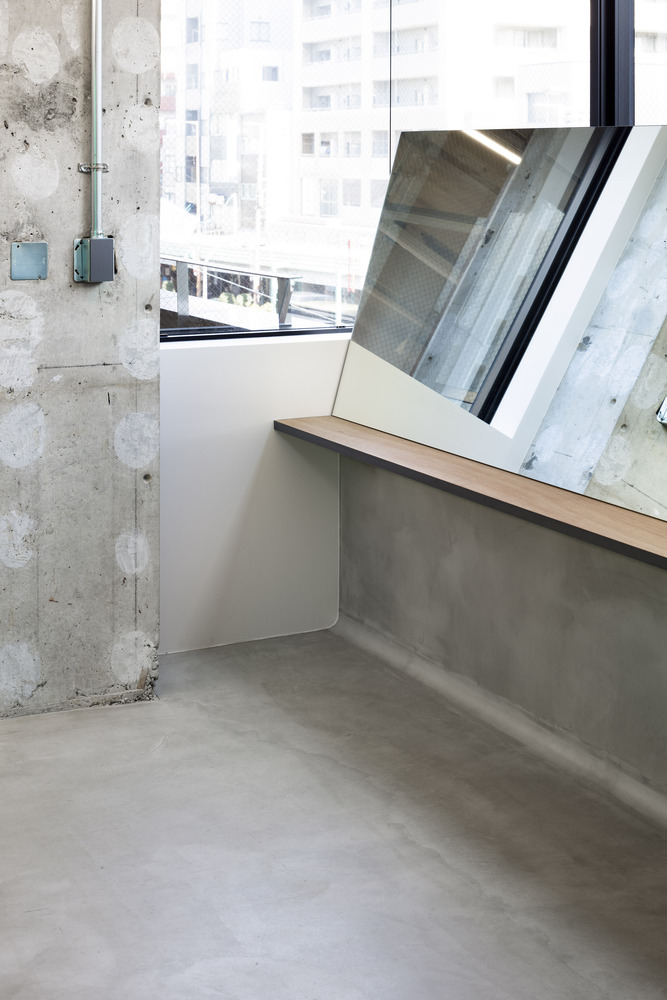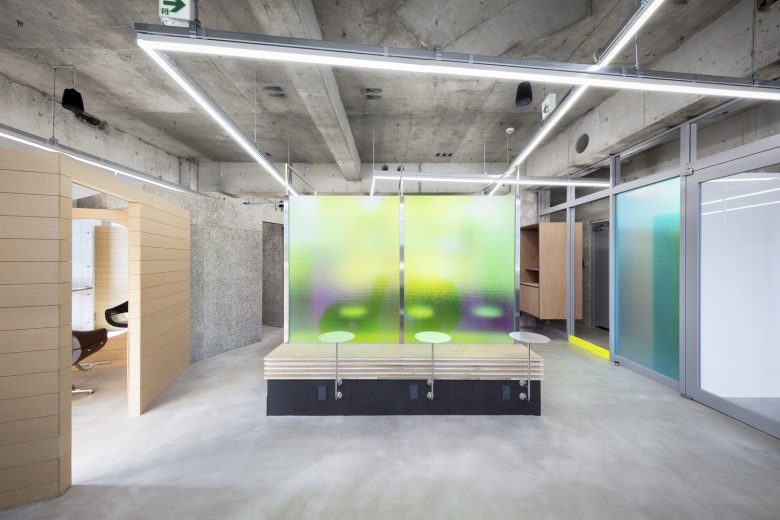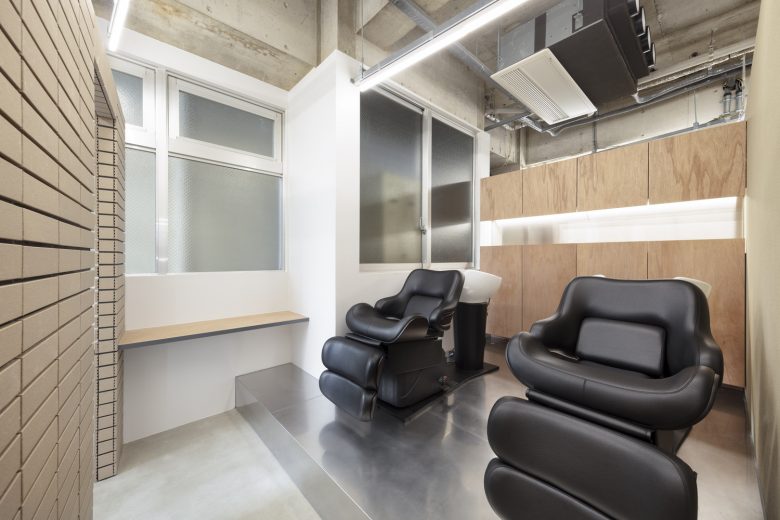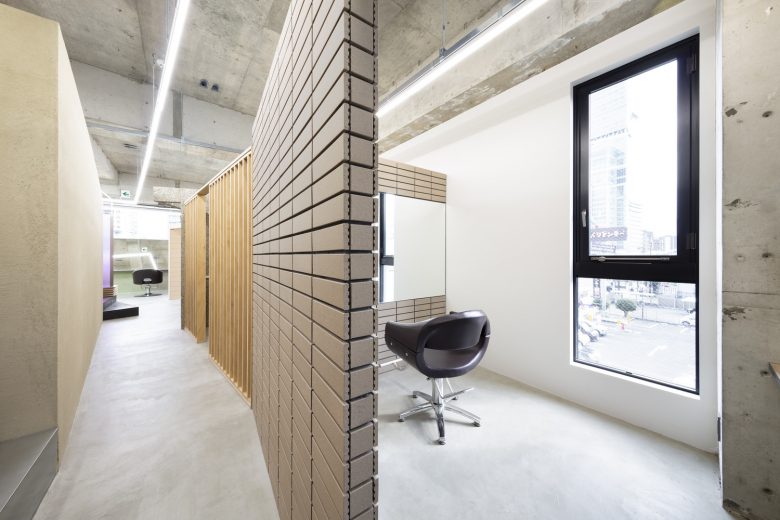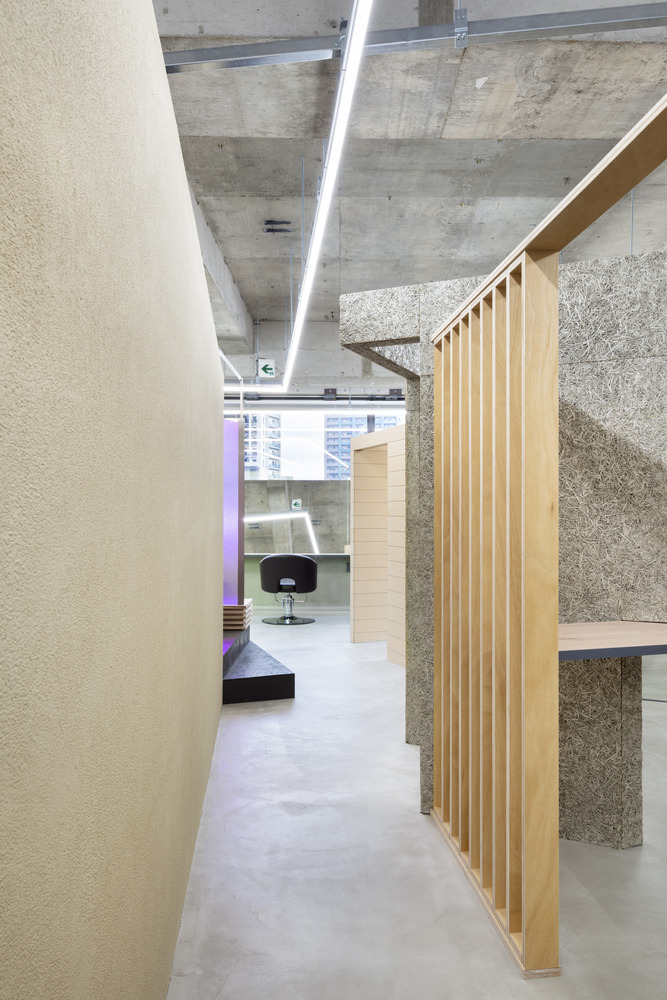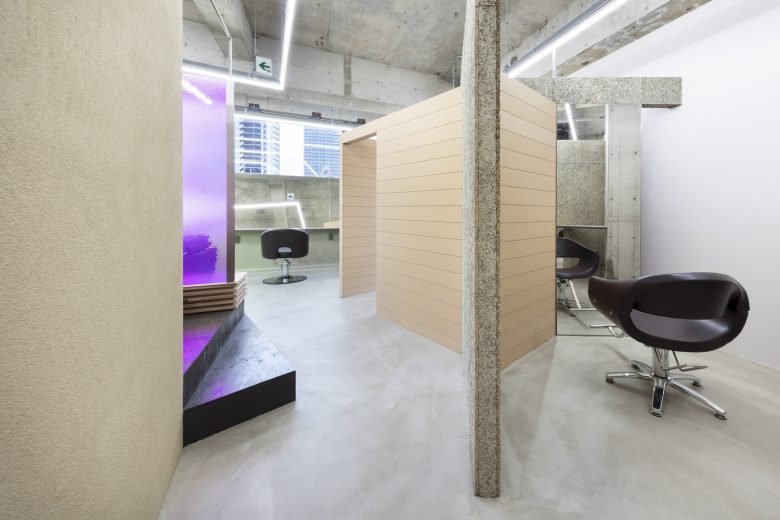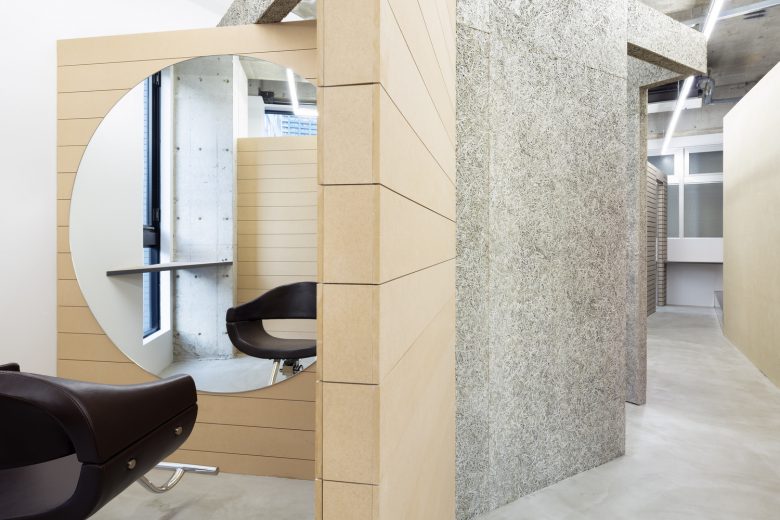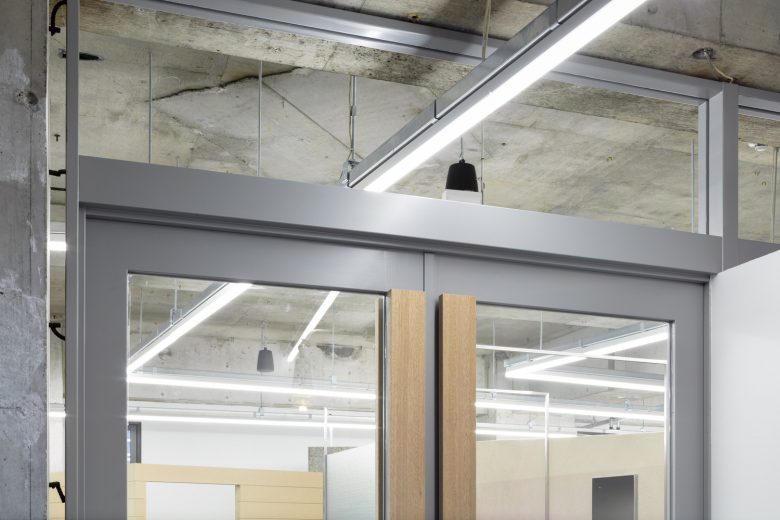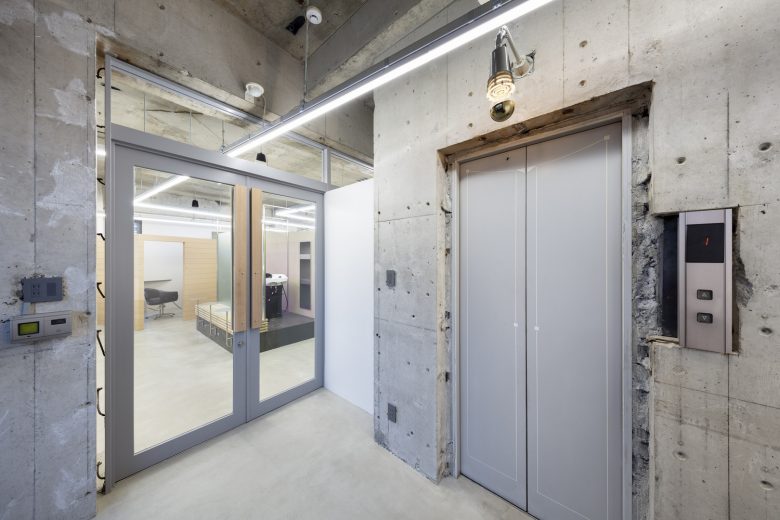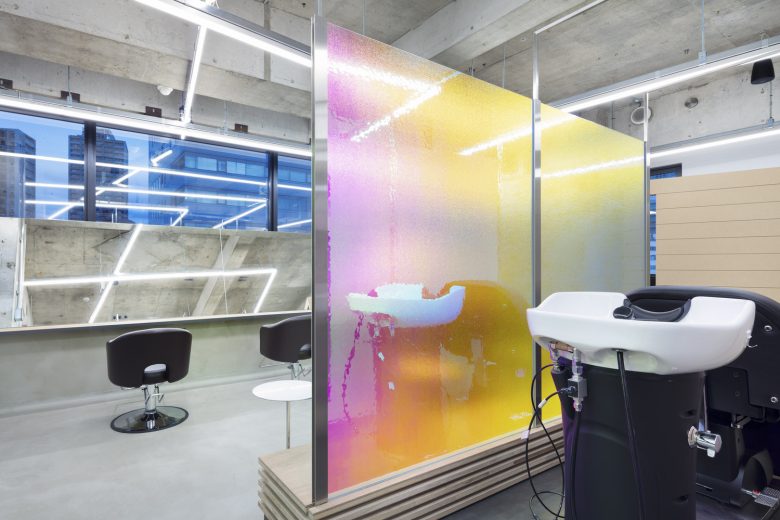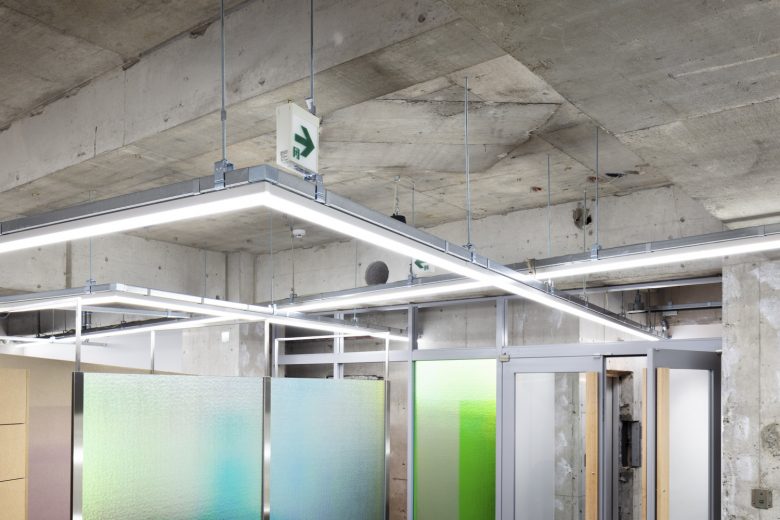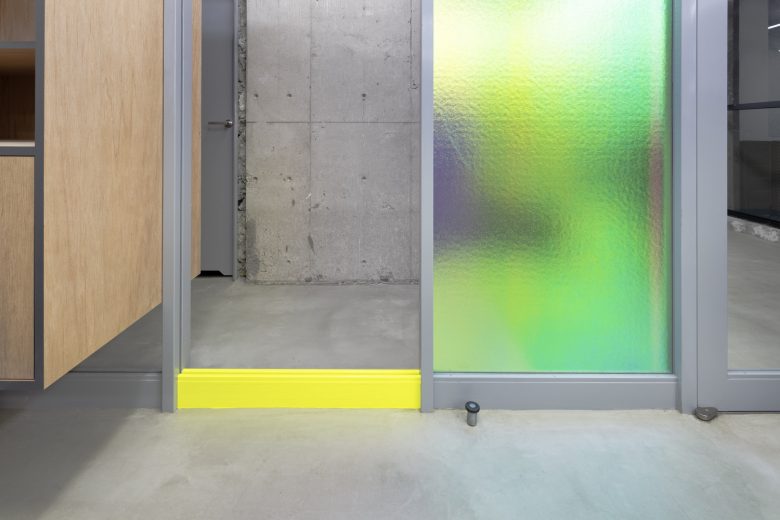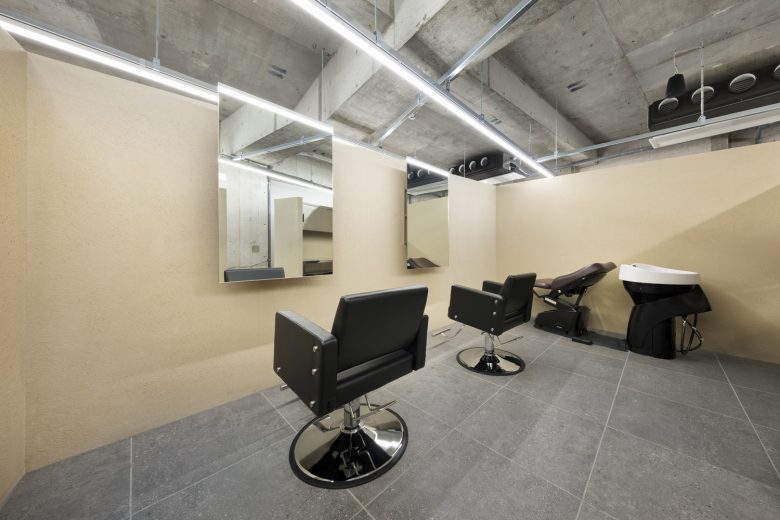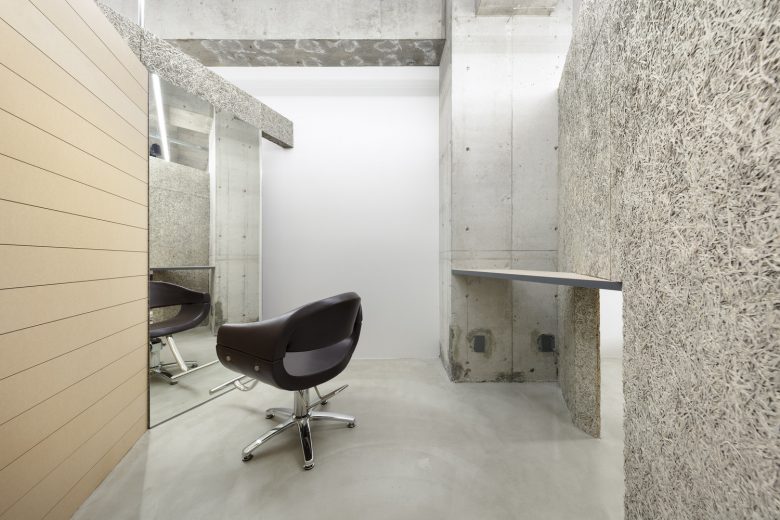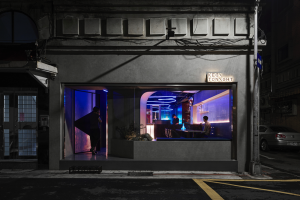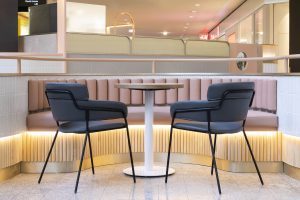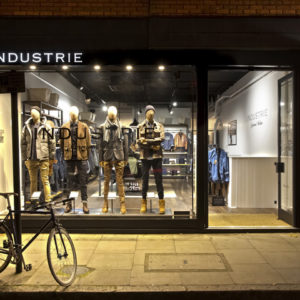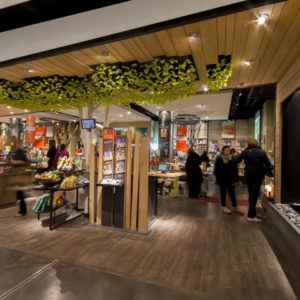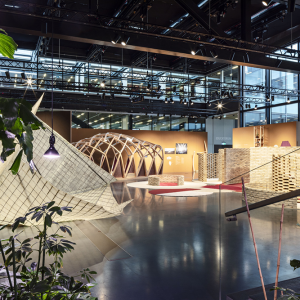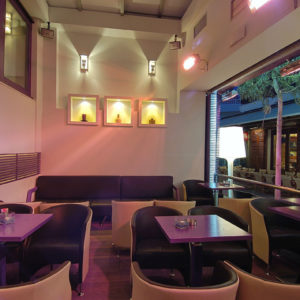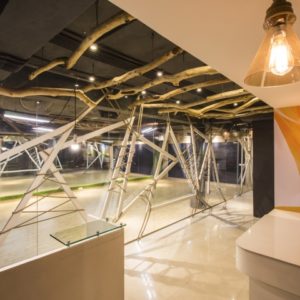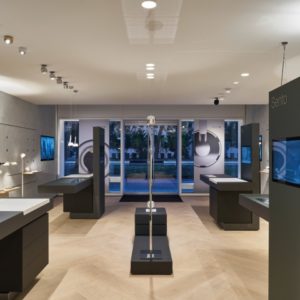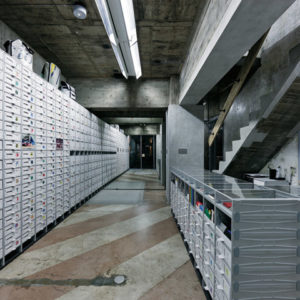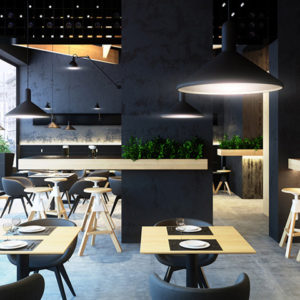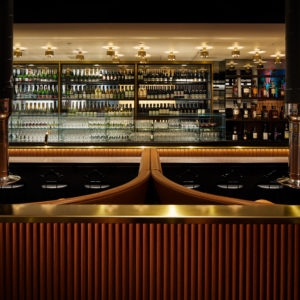
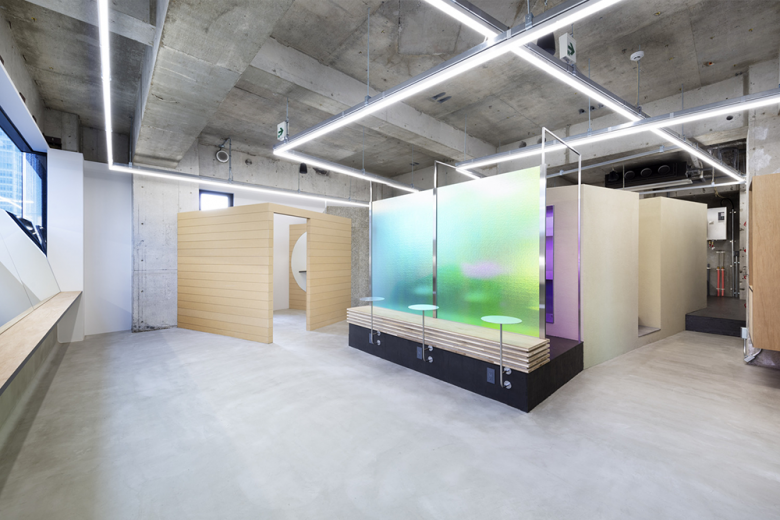
Share Salon JAM is a beauty salon located in Osaka. The client was Mr. TAKU NAGASAKI of storage green label. In recent years, the demand for shared salon spaces is gradually increasing in Japan as well. The impacts of the COVID-19 pandemic on employment are one of the reasons for this.
Due to factors such as shortened operating hours, increasing numbers of workers see the appeal of working freelance. In response to this changing environment, Share Salon JAM was completed in 2020 as a space enabling salon staff to work whenever and for as long as they want.
The design concept is around “jam.” This word expresses the meaning of different people working alongside each other. Instead of borrowing a salon name and working as employees, this facility allows each worker to express their own unique individuality, We express this concept as “intermixing individuality.”
First, the color of the front glowing wall varies depending on the angle. It shows the individuality of human beings and different perspectives. Each person’s individuality is like a material (box). In addition to tiles and paint, the materials for the private rooms normally used for the base were also employed.
By giving a flat value to these materials that are usually covered over immediately, the design achieves an expression of individuality free from any hierarchy of superiority and inferiority, which I think is a beautiful thing. Also, the shape of these boxes is not perfectly aligned but instead allowed to overlap with other neighboring rooms. This gives the space a sense of varied movement.
Although this expresses the forms of free individuality (materials) in a lively motion and through helping each other, the shape was not created by chance. This design was essential for allocating functional lines of movement to maximize the utilization of the space. There are three types of rooms to choose from. There are private rooms, semi-private rooms, and open space available. For these rooms, the shampoo stations are shared with the open space, so ensuring that the usage timing for these stations didn’t overlap was one issue to consider.
As a means of reducing customer contact and achieving smooth movement, customers’ shoes alone are visible from the hall during shampooing. Stylists can also immediately tell whether each station is in use or not. From the perspective of social distancing as well, this approach provides maximum function with minimum space.
Architects: kfuna
Lead Architect: Fumitaka Kawanishi
Photographs: Takumi Ota
